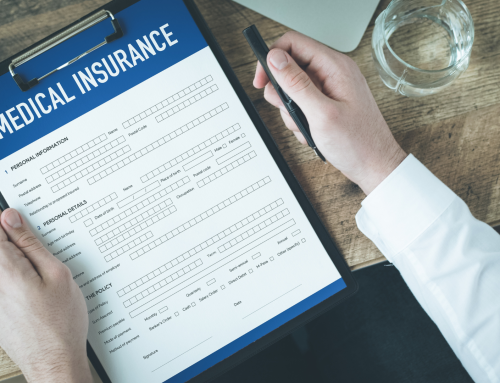An insurance policy is an agreement between two parties, one paying the primary insurer money in return for protection against risk or liability. Different types of insurance policies exist to cover various aspects of daily life.
The difference between Life, Health, Business, and Disability Insurance
Life, health, business, and disability insurance are four different insurance policies that can protect you, your business, and your loved ones.
Life insurance protects you and your spouse or partner financially if you die. It also gives your children financial support if they lose their parents in death. Health insurance covers medical expenses not covered by your regular Medicare or Medicaid plan. Business insurance is a critical financial tool that can provide protection to your business against unexpected risks, such as property damage, liability claims, or loss of income, helping to safeguard your assets and operations. In case you’re not involved in any business but work for a specific organization, disability insurance becomes of utmost importance as it will provide income replacement in the event you cannot work due to a disability.
Each type of policy has its benefits and drawbacks. For example, life insurance usually has lower but higher annual premiums than health insurance. Disability insurance may have lower premiums than life and health insurance, but it may not cover as many medical expenses as either type of policy.
When choosing an insurance policy, read the fine print, so you understand all the details of the coverage and the costs involved.
Life Insurance
Regarding life insurance, there are various policies to choose from. Here is a look at the three most common types of policies: term life insurance, universal life insurance, and permanent life insurance. Term life insurance covers a set period, typically six months to 10 years. Universal life insurance offers coverage for any time but may have higher premiums than term life insurance. Permanent life insurance covers you and your family members for as long as you live, no matter how long that may be. What makes permanent life insurance unique is that it not only acts as a safety net in the event of your untimely demise but also includes a cash value component that can grow over time. This feature can potentially serve as a valuable asset and a financial resource during your lifetime. So, if you are interested, then you can Buy permanent life insurance here at affordablelifeusa.com or similar websites. Remember, each policy has its benefits and drawbacks, so it’s important to compare all the options before deciding.
Health Insurance Policies
There are a variety of types of health insurance policies, each with its pros and cons.
Health insurance can protect you financially if you get sick or need medical care. The two most common types of health insurance are medical and hospital insurance. Medical insurance covers the costs of medical expenses, such as doctor visits, hospital stays, and prescription drugs. Hospital insurance covers the costs of preventable hospitalizations.
You may also consider buying life insurance to protect your family from financial hardship if you die prematurely. Life insurance premiums pay out your beneficiaries if you die before your policy expires. There are different types of life insurance, including whole life, universal life, variable life, and immediate term life. Whole life policies pay the same amount every month regardless of how much money is in your account at the time of death.
Universal life policies payout a fixed percentage of the policy value each year, while variable life policies payout a percentage based on how much money is in your account at the time of death. Immediate-term life pays out a fixed sum when you die, but there is a chance that it will not pay anything if you die within the first few years after you buy it.
Business Insurance
Determining the right insurance for your business can be a bit tricky. It depends on things like how big the company is, what kind of work it does, and where it’s located. One way to figure out if you need insurance is by checking the risks your business might face. This helps you see which problems could hurt your business the most. Once you know these risks, you can choose the right insurance to protect against them. There are pages you can visit that list the best insurance plans for your business, which will give you an idea of what to choose. Another thing to think about is your company’s history. If bad things happened before, they might happen again. This can help you pick insurance that covers those specific problems.
The cost of your business insurance depends on several factors. These factors include the location of your business, its type, level of risk, and annual revenue. For instance, if your business is involved in shooting activities, you might have to get in touch with companies like Sage Program Underwriters for shooting sports insurance. Similarly, if you own a restaurant, you may have to purchase insurance for your employees, potential property damage, and other related risks. Consequently, the type of business you operate and the associated risks will dictate the appropriate insurance coverage you need.
Disability Insurance
Disability insurance is a type of insurance that protects people who are unable to work due to a disability. Disability insurance policies can provide financial protection in the event of an injury or illness that causes a person to become disabled. There are several different types of disability insurance policies, each with its benefits and premiums.
This type of coverage typically covers income lost due to becoming disabled. Disability policies may also cover costs associated with long-term care services, such as home health aides, any sort of support coordination services an individual might need, nursing home care, and hospice care. Some policies may also provide coverage for the cost of accidental death or dismemberment.
The number of benefits payable under a disability policy will vary depending on the policy’s terms and the individual’s specific situation. Generally, benefits will start immediately after becoming disabled and continue until the insured person reaches retirement age or dies, whichever comes first. Policyholders have the option of receiving benefits in monthly installments or one lump sum.
Several factors determine whether an individual is eligible for disability insurance coverage. These include whether the individual has a physical or mental impairment that prevents him from working, whether he can perform any job-related activities with minimal assistance, and how much income he would be likely to lose if he were unable to work due to his impairment.
People who are considering purchasing disability insurance should consult with an independent advisor who can help them understand their options and make an informed decision about which policy is best suited for.







Leave A Comment